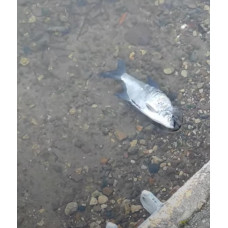Mortality is the property of a population to reduce its number due to the death of individuals; it is expressed by the ratio of dead individuals for a certain period of time to the number of all individuals in the population. Mortality is subdivided into natural and commercial mortality. The sum of the population loss due to fishing and natural causes is total mortality.
Natural mortality - death of fish as a result of natural causes, including predation, old age, disease, pollution, etc., excluding fishing.
Actual (environmental) mortality - mortality in specific habitat conditions of an organism.
Mortality estimates are very important. Determining its coefficients is crucial for determining the abundance of fish populations. Using the model Z = M + F, where M is natural mortality and F is fishing mortality (combined landings plus discards), you can estimate the trend of a population. Mortality rates give you the total number of deaths in the population, and when compared with the total number of births or newborns in the population, you can tell whether the population is increasing or decreasing. Knowing these indicators can help set catch limits at maximum sustainable yield (MSY) or optimum sustainable yield (OSY) to maximise the benefits to stakeholders in the resource.
Fish mortality
Tags: fish mortality

